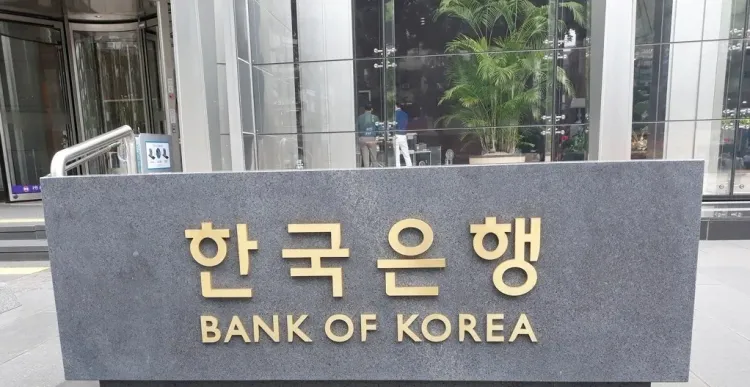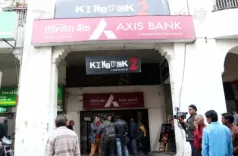What Led to the 3% Growth in South Korea's Per Capita Household Net Assets in 2024?

Synopsis
Key Takeaways
- 3.3% increase in household net assets from 2023.
- Total national assets reached 24,105 trillion won.
- Financial assets surged 56% in 2024.
- South Korea surpassed Japan in net assets for the third year.
- Non-financial assets represented 93.3% of total national assets.
Seoul, July 17 (NationPress) In 2024, South Korea's per capita household net assets experienced a remarkable increase of over 3 percent compared to the previous year, fueled by escalating home prices and a rise in financial assets, according to data released by the central bank on Thursday.
The average net assets of South Korean households reached 252.51 million won (approximately US$181,570) last year, representing a 3.3 percent rise from 2023, as per the national balance sheet published by the Bank of Korea (BOK).
When converted to U.S. dollars using the average exchange rate of 1,363 won per dollar in 2024, the assets stood at $185,000, marking a slight decline from $187,000 in 2023.
However, this amount exceeds Japan's $180,000, as South Korea has outperformed Japan in this aspect for the third consecutive year.
The United States reported a figure of $521,000, followed by Australia at $401,000, Canada at $295,000, France at $230,000, and the UK at $206,000, according to the data.
By the end of 2024, South Korea's total national assets reached 24,105 trillion won, marking an increase of 5.3 percent from the previous year, a significant acceleration from the 1.3 percent growth recorded in 2023.
Net national wealth stood at 9.4 times the nation's nominal GDP of 2,557 trillion won as of the end of 2024.
This growth is largely attributed to the rise in non-financial assets, such as land and housing, which increased by 2.9 percent on-year to 22,485 trillion won.
These non-financial assets constituted 93.3 percent of the total national assets.
Meanwhile, financial assets skyrocketed by 56 percent year-on-year to 1,620 trillion won, driven by robust overseas investments and favorable won-dollar exchange rates.
A BOK representative commented, "Korean investors have significantly augmented their investments in overseas stocks and bonds, leading to considerable valuation gains on these investments."
He further noted, "The solid performance in foreign stock markets and a strong dollar have enhanced the valuation of financial assets held abroad by Koreans."









